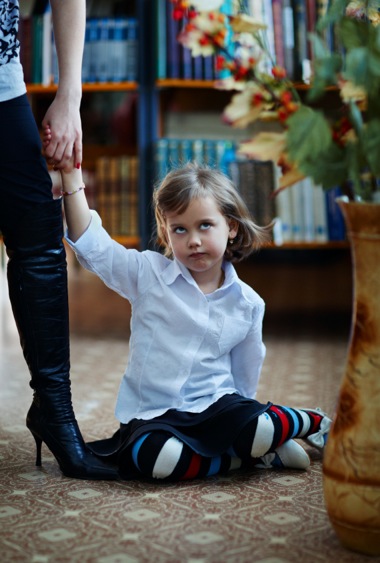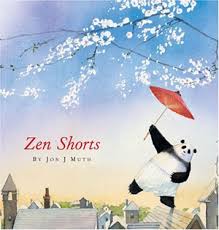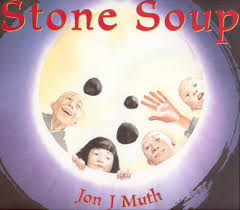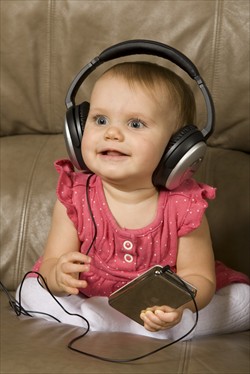If you’re a hyperparent, you might not even know it — we parents tend to be in denial about that sort of thing.
But if you are, you might want to learn to relax — for your kids’ sake, and for yours.
Hyperparents are spotted when they are trying to educate their child from the womb, and expose them to the most intellectually stimulating music and art and literature before the kid can crawl. They obsess over everything, from whether the child is learning fast enough to how safe every single thing is to every little scrape and bruise. They are overprotective, overbearing, overwhelming to the child.
I admit, I was a hyperparent once, and still can be sometimes. It’s a habit I’m trying to break, with some success.
And for those of you who are hyperparents, and will admit it if only to yourselves, I’d like to share some things I’ve learned, in hopes that it’ll help.
Be forewarned that some of these suggestions take a very different approach to parenting than the traditional methods — I’m not suggesting everyone follow them, especially if you’re not willing to break with traditions. What I am suggesting is that these methods will help you relax, will help your child feel freer and less controlled and more able to explore and learn on her own, and could possibly result in a better relationship with your child and a happier child overall. I don’t have proof of that yet, but I have a strong hunch based on how my kids react when I do these things right.
1. When you get angry, pick them up and hug them. Instead of scolding or spanking or time outs or other controlling methods, try love. It’s a much better response, and you’re teaching your child through your actions rather than your words.
2. Make this your mantra: treat them with kindness, treat them with respect. Seems simple, but it’s surprising how little respect we give to kids, because they’re kids.
3. Drop your expectations of the child. Often parents have high hopes of the child doing well academically, or in sports, or of becoming a professional, when that’s not what the child wants. Or the parent hopes the child will be a certain type of person, and tries to steer the child toward that — a mild, kind child, or a bright, cheerful child, or a studious, hard-working child — but that’s not who the child is. Drop these expectations, and celebrate the child, as she is.
4. Let her play, let her explore. Stop being so overprotective. Allow the kid to be a kid. Let her run around outside, ride a bike, explore nature, play with fire. Teach her, of course, about safety and dangers, but let her be a kid.
5. Say yes, or some version of yes. Instead of saying no. Often parents have an instinct to say no. But this is controlling and stressful, to both child and parent. Stop trying to control the child, and give him some freedom. That doesn’t mean you can say yes all the time, because you have needs too, but it does mean you can say “Yes, we can do that … but perhaps later, when I’m done with what I have to do now.”
6. Stop trying to overeducate, and get out of the way. Parents try to impart all kinds of knowledge on kids. So do schools. But kids learn naturally, without us. Get out of the way, stop trying to force the kid to learn what you think he needs to learn. Encourage him to explore, and read, and figure stuff out. Get him excited about things. When he’s excited about something, he’ll learn. When you force it on him, he’ll do what he’s forced to do, but not learn much other than you’re controlling.
7. Just focus on making the next interaction with them positive. Many of these changes are difficult to make for parents, as we have deeply ingrained habits, stemming from our own childhood. So just focus on the next interaction. Just try to make the next one a good one. Don’t worry about when you screw up — just apologize if you’ve broken a trust, and move on.
8. Take a moment to pause, and see things from your child’s perspective. If you get angry, it’s because you’re only seeing things from your perspective. The child has a completely different view of things, and if you can understand that view, you won’t be mad at the child. You’ll try to make things better for her.
9. If the kid is “acting up”, try to figure out why, and meet that need. Often it’s a need for freedom, or attention, or love, or to be in control of his own life. Figure out what that need is, and find a more productive way to meet it.
10. The kid is already perfect as he is. You don’t need to change him. You don’t need to mold him into the perfect person. He’s already perfect, just as he is.
And now, relax. Enjoy every moment with your child, because they are too few, too impermanent. Trust me — my oldest daughter is 16, and I can’t believe how fast her childhood has come and gone. Cherish this time with them, and make every moment a good one. You’ll never regret those moments of happiness, those moments when you said yes, when you let your child play, when you stopped controlling and started loving.















